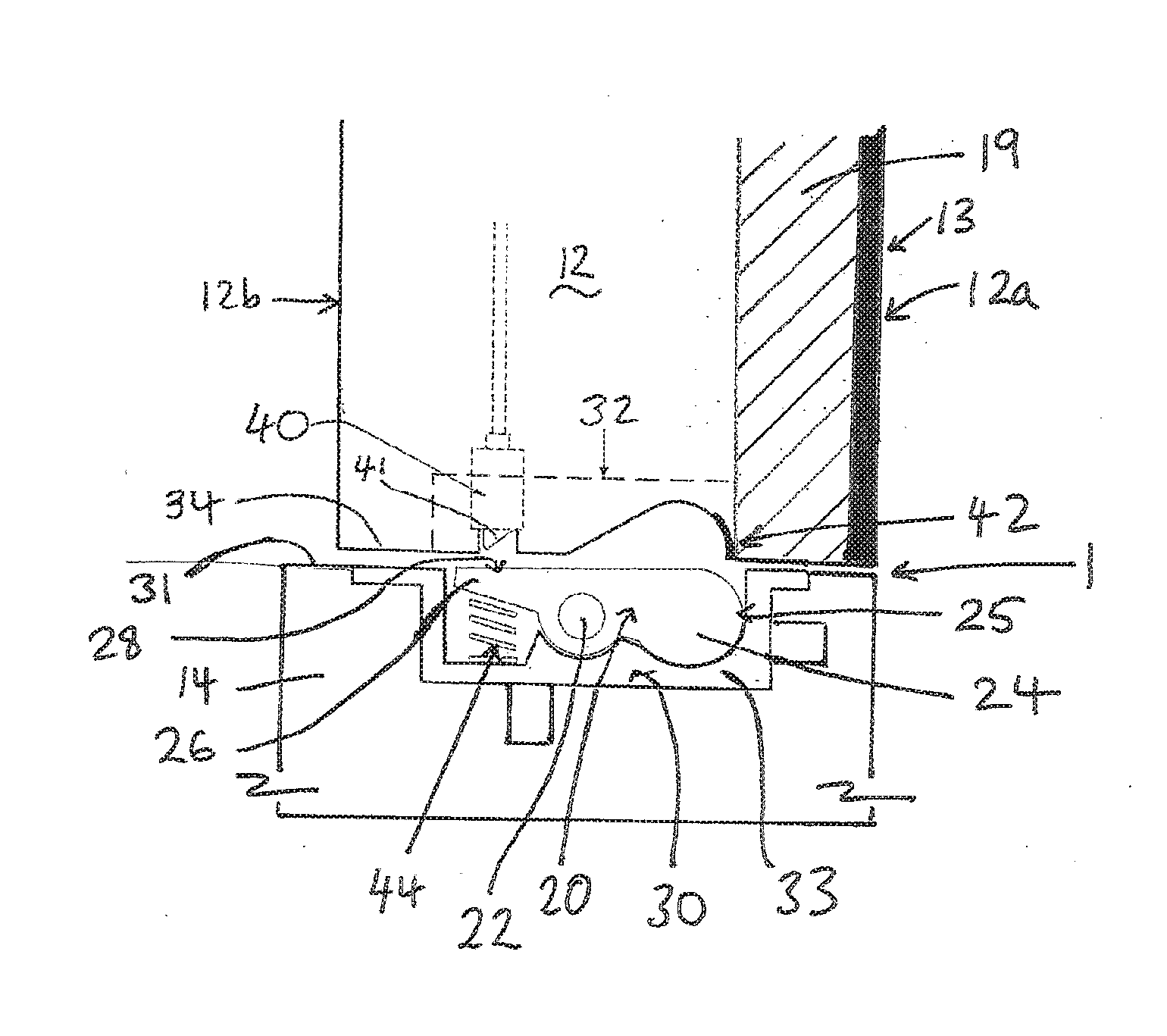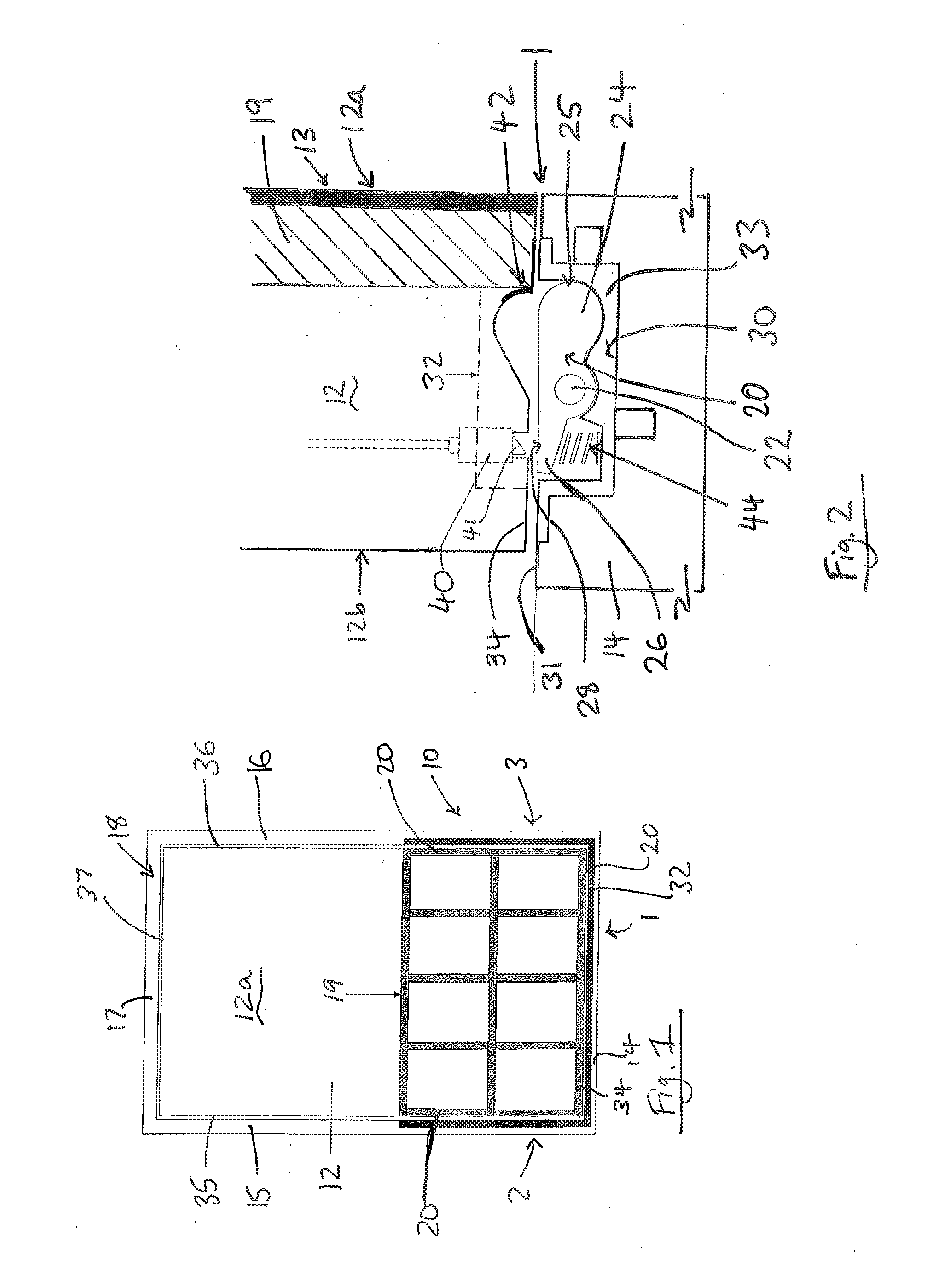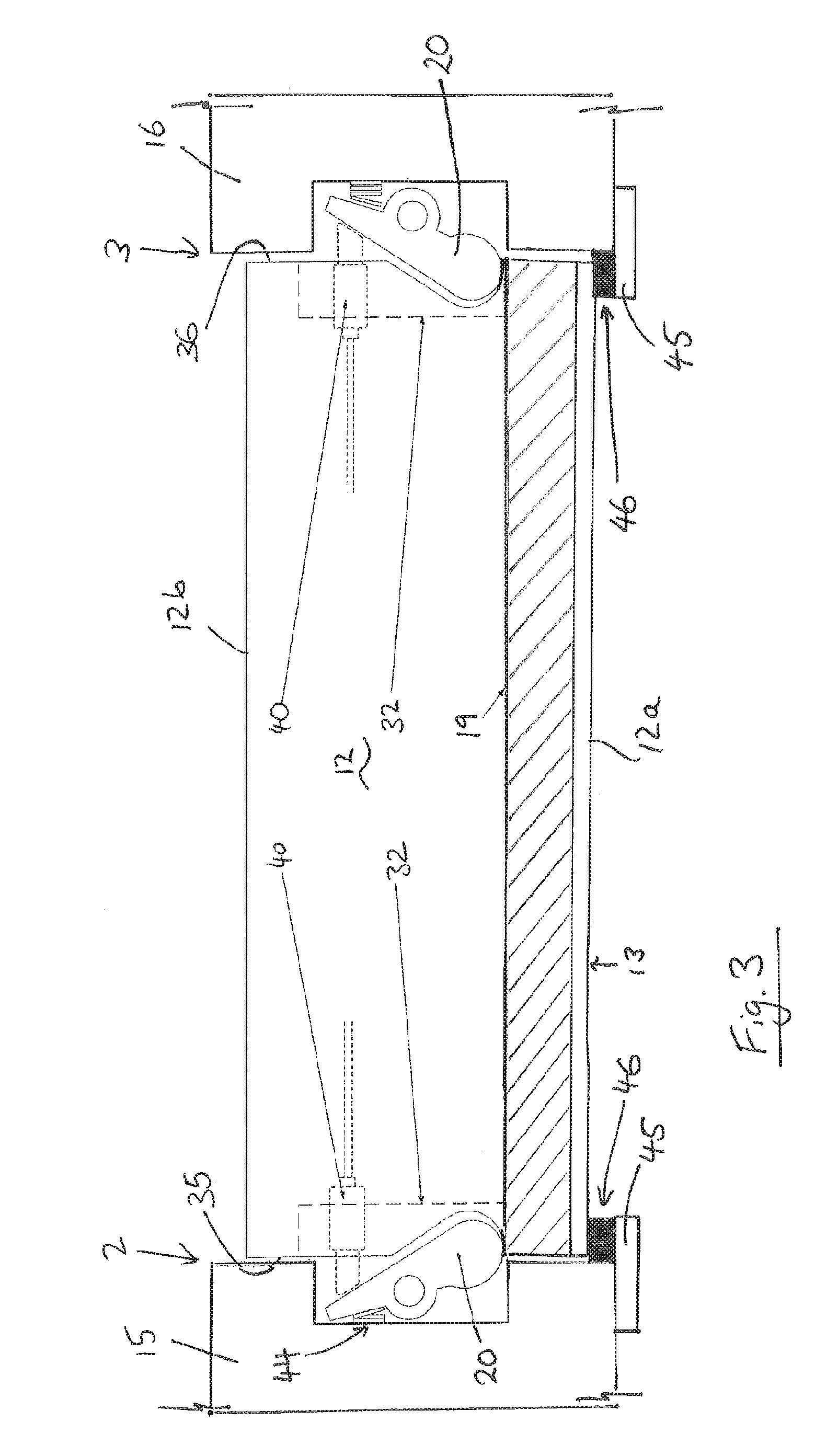A Locking Device
a technology of locking device and sealing mechanism, which is applied in the direction of building locks, wing fasteners, building components, etc., can solve the problems of increasing the cost and complexity of locking apparatus, modern locks potentially working at the very edge of their performance capability, and reducing the effectiveness of locking and sealing mechanisms, so as to improve the effectiveness of locking and sealing. , the effect of tight manufacturing tolerances
- Summary
- Abstract
- Description
- Claims
- Application Information
AI Technical Summary
Benefits of technology
Problems solved by technology
Method used
Image
Examples
Embodiment Construction
[0045]The present embodiments represent currently the best ways known to the applicant of putting the invention into practice. But they are not the only ways in which this can be achieved. They are illustrated, and they will now be described, by way of example only.
[0046]Referring to FIG. 1, this diagrammatically shows a locking device 10 installed in a leaf assembly comprising a leaf 12 mounted in a corresponding frame 18, also known as a jamb. In this embodiment the leaf 12 is a moveable leaf and the frame 18 is fixed. The leaf can be any leaf, such as a door or gate, suitable for closing an aperture within the frame.
[0047]The locking device comprises a cam 20, which acts as a blocking member to resist movement of the leaf 12. The cam 20 is moveable between an unlocked condition in which it does not hinder the movement of the leaf 12 and a locked condition in which it resists the movement of the leaf 12, as will be further described below. The locking device includes an actuator m...
PUM
 Login to View More
Login to View More Abstract
Description
Claims
Application Information
 Login to View More
Login to View More - R&D
- Intellectual Property
- Life Sciences
- Materials
- Tech Scout
- Unparalleled Data Quality
- Higher Quality Content
- 60% Fewer Hallucinations
Browse by: Latest US Patents, China's latest patents, Technical Efficacy Thesaurus, Application Domain, Technology Topic, Popular Technical Reports.
© 2025 PatSnap. All rights reserved.Legal|Privacy policy|Modern Slavery Act Transparency Statement|Sitemap|About US| Contact US: help@patsnap.com



